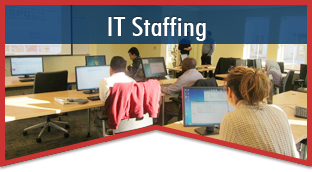 |
 |
 |
 |
 |
 |
Resume TipsA resume is a one or two page summary of your skills, accomplishments, experiences, and education designed to capture a prospective employer's interest.The purpose of a resume is to secure an interview. It is the primary tool of your job search and may take several drafts to prepare effectively. While technology seems to simplify the resume writing task, and practically anyone can follow advice taken from books, the missing ingredient in many of these resources is that they don't tell you what staffing professionals are really looking for in your resume Building An Effective Resume
Self-AssessmentBefore you can write an effective resume, you must first be able to identify your skills and abilities as well as your special needs relating to the work environment, salary, geographic location, and people environment. This step will help you to develop a career objective. The following exercises will help you identify some things about yourself which you may want to express in your resume. Career ExplorationCollecting information regarding the required skills and qualifications of occupations which interest you is an extremely important step. This information will help you decide if and how these requirements relate to your own skills and needs. Using the books available at your institution's career center or making an appointment with a counselor can be helpful in identifying and exploring careers and can also help you in developing a career objective. Writing The Resume
As you organize your resume, keep in mind the needs of the employer who will be reading it. Consider what s/he is looking for in a candidate and make it easy for the reader to pick out those skills by selecting appropriate categories, using underlining, boldfacing or capitalizing and presenting relevant experience and skill areas higher on the page. Keep in mind the following suggestions as you begin developing your resume:
Make Your Resume UniqueFeel free to develop your own categories to highlight your special relevant experiences and skills. It is frequently useful to separate your related or professional experiences from your other work experience by creating separate categories for these content areas. In this way, you can call more attention to your relevant skills by putting them in categories closer to the top of the resume so they are read first. Here Are Some Examples:
In place of Related Experience you might wish to indicate your field of experience in the category heading. Examples: Business Experience, Engineering Experience, Human Services Experience, Sales Experience, etc. Resume Content AreasThe following categories can be used as guideline to assist you in organizing a resume. In constructing a rough draft, do not be concerned with length. Remember, categories may be omitted or added in later revisions. There is no absolute correct way to organize your resume. Creativity is encouraged. The following are descriptions of the basic categories of the standard resume: Name, Address and Telephone:Present yourself with the name you use in your personal and business life (nicknames should be avoided). If you have a campus address that does not apply during vacations or after graduation, you should present both a college and permanent address. Use your parents' home address, a post office box, or someone who will know where to contact you at all times. Also, always include phone numbers with area codes. If you have an e-mail address, you might want to include that as well. Objective or Profile:The objective is one of the most important parts of a resume and should not be overlooked. It informs potential employers that you are moving in a certain direction, relates your work preference(s), and serves as a focal point from which to review and analyze your resume. It should be brief, clearly stated, and consistent with the accomplishments and demonstrated skills as documented on your resume. If you are considering more than one professional goal, you should consider developing more than one resume, each presenting a different objective. Example:
The profile is an alternative to an objective statement. It gives you the opportunity to present your strengths at the very beginning of the resume. Example:
In writing the major areas of your resume, it is important to emphasize your abilities and accomplishments more than past duties. You may also want to indicate how well you performed. This will help infuse personal qualities such as character and personality into your resume. Education:This category is particularly important if you have not had a great deal of work experience. Remember, your most recent educational experience should be listed first. Include your degree (Pharmacy., R.Ph., B.S., etc.), major, institution(s) attended, date of graduation, minors or concentrations, and any special workshops, seminars, related coursework or senior projects. A G.P.A. of higher than a 3.0 (either overall G.P.A. or G.P.A. in major) should also be noted here. Work Experience:Many students have limited paid work experience, but have been involved in volunteer, internship, practicum or student teaching work experiences. The important point to the employer is what your skills are and what you can do on the job. Be sure to include all significant work experience in reverse chronological order. Note to teacher candidates: be sure to include your student teaching experience on your resume.
Additional InformationThis category is useful for displaying information that doesn't fit in any other category. Although Interests, Computer Knowledge, and Activities can be separate categories, especially if they are very strong, they can be listed here as well. Languages spoken, or any extra, relevant bit of information can be placed here as well.
References:Be sure to ask individuals if they would be willing to be a reference for you prior to mentioning their names to prospective employers. Names of individuals are not usually listed on the resume (unless there is space available at the end), but you should prepare a typed list of three references to provide at the interview. This list should include name, title, employer, address, business and home telephone number. You may also state at the bottom of your resume "References furnished upon request." Cover LetterFinally, don't underestimate the importance of the cover letter. In a recent survey of 150 executives from the nation's 1,000 largest companies, 60 percent of the respondents said that when they screen applications, the cover letter is either as important as or more critical than the resume. Your cover letter really does matter. |